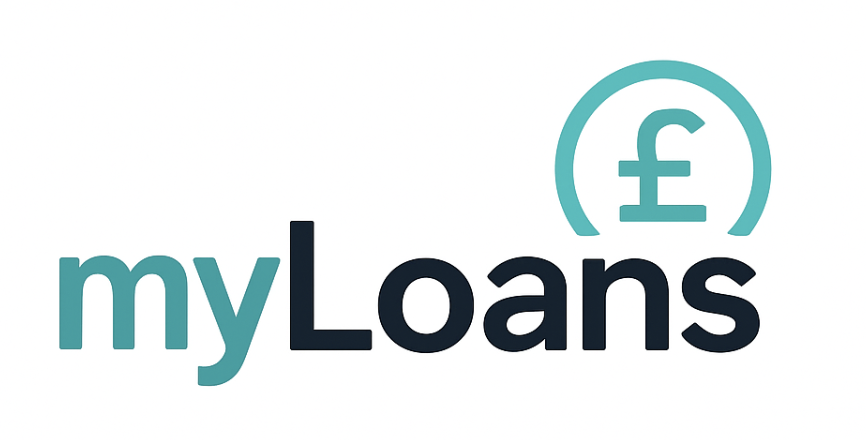Table of Contents
Who Can Apply for a Guarantor Loan?
Guarantor loans are designed for borrowers who:
-
Are 18+ and UK residents
-
Have a poor, fair, or limited credit history
-
Can show proof of income from employment, self-employment, or certain benefits
Guarantors must:
-
Be aged 21–75
-
Live in the UK with a stable address
-
Have a stronger credit history than the borrower
-
Show proof of regular income or pension
-
Often be a homeowner (though some lenders accept tenants)
📌 Note: Many lenders will not accept guarantors who are financially linked to the borrower (e.g. a spouse with a joint mortgage).
Step 1: Check Eligibility Requirements
Before applying, check both borrower and guarantor criteria published on the lender’s website. Applying without meeting these requirements may harm your credit file due to unnecessary hard checks.
Typical checks include:
-
Age and residency
-
Employment and income stability
-
Affordability ratios (income vs expenses)
-
Credit history of both borrower and guarantor
Step 2: Choose the Right Guarantor
Choosing a guarantor is one of the most important steps. Lenders want someone financially stable who can repay if needed.
A good guarantor is:
-
Trustworthy: Someone you have a strong personal relationship with
-
Financially capable: Sufficient income or assets to cover repayments
-
Willing: They must consent to full legal liability if you miss payments
🔎 Example: If you borrow £5,000 and cannot make repayments, your guarantor may need to repay the entire outstanding balance — not just one missed instalment.
Step 3: Gather Documents and Information
To speed up the guarantor loan application process, both borrower and guarantor should prepare the following documents in advance:
For the borrower:
-
Proof of ID (passport or driving licence)
-
Proof of address (utility bill, council tax statement)
-
Recent bank statements (usually 3 months)
-
Proof of income (payslips, benefits letters, or tax returns)
For the guarantor:
-
Proof of ID
-
Proof of address
-
Bank statements
-
Proof of income and housing status (homeownership or tenancy agreement)
Step 4: Compare FCA-Regulated Lenders
Not all lenders are the same. Before applying, compare guarantor loan providers on:
-
APR and interest rates (small differences matter over years)
-
Repayment terms (flexibility for early repayments or payment holidays)
-
Fees (late fees, admin charges, or hidden costs)
-
FCA authorisation — always check the Financial Services Register
Avoid unregulated firms offering “guaranteed loans” or “no credit check loans” — these are often scams.
Step 5: Submit Your Application
Most lenders allow you to apply for a guarantor loan online. You’ll typically need to enter:
-
Personal and financial details (income, employment, living costs)
-
Loan amount and preferred repayment term
-
Full details of your guarantor, including contact information
Some lenders use a soft credit check at this stage, so you can see if you’re eligible without affecting your credit score.
Step 6: Credit and Affordability Checks
The lender will then run formal checks on both borrower and guarantor:
-
Credit check: Verifies history of repayments, defaults, CCJs, or insolvencies
-
Affordability check: Confirms that income is sufficient to cover repayments
-
Guarantor check: The lender contacts the guarantor directly to confirm their consent and understanding of the risks
If the guarantor fails checks or refuses consent, the application will be declined.
Step 7: Loan Approval and Payout
If both borrower and guarantor pass checks:
-
Both must sign the loan agreement (digitally or on paper)
-
The loan funds are often sent to the guarantor’s account first, then transferred to the borrower (a fraud-prevention step)
-
Payout can be same day if documents are ready, but more commonly takes 24–72 hours
Tips for Faster Approval
-
✅ Choose a guarantor with strong credit and a stable income
-
✅ Prepare all documents in advance
-
✅ Apply with only one FCA-authorised lender at a time
-
✅ Respond quickly to lender requests for additional information
-
✅ Use lenders offering “soft checks” first to avoid harming your score
Common Reasons Applications Are Declined
Even if you apply correctly, some guarantor loan applications are refused. Common reasons include:
-
Borrower or guarantor fails affordability checks
-
Guarantor’s credit history is too weak
-
Borrower already has high levels of existing debt
-
Application flagged for incomplete or inconsistent information
Final Thoughts
Applying for a guarantor loan in the UK is a structured process that requires preparation from both borrower and guarantor. By checking eligibility early, choosing the right guarantor, gathering documents, and applying with FCA-regulated lenders, you can significantly improve your chances of approval.
Remember: while guarantor loans can help rebuild credit, they create a serious legal obligation for your guarantor. Always borrow responsibly, read the agreement carefully, and ensure repayments are affordable for the full loan term.
For further guidance, see our Guarantor Loans Eligibility & Application Process and our Guarantor Loans UK Guide.
How Much Can You Borrow with a Guarantor Loan?
If you’re considering a guarantor loan, one of the first questions you’ll likely ask is: “How much can I actually borrow?” The answer isn’t the same for everyone. While most guarantor lenders in the UK advertise loans between £1,000 and £15,000, the amount you’re...
Loan Guarantors Explained: Who Can Be a Guarantor
When applying for a loan with poor credit, lenders may ask for a loan guarantor. But what does that mean, who can act as a guarantor, and what responsibilities are involved? In this guide, we explain the role of guarantors in the UK, how they affect the loan...
Direct Lender Bad Credit Loans: With and Without Guarantor
When you’re searching for a loan with poor credit, you’ll often come across two terms: direct lenders and guarantor loans. But what does “direct lender” really mean, and how do loans with or without a guarantor compare? This guide explains everything you need to know...
What Happens If You Can’t Pay a Guarantor Loan in the UK?
Guarantor loans can provide vital access to credit for borrowers who have been turned down elsewhere due to bad credit or limited credit history. But what happens if you can’t pay a guarantor loan? The consequences can be serious, affecting both the borrower and the...
Do Guarantor Loans Affect Your Credit Score in the UK?
Before applying for a guarantor loan, many borrowers and guarantors ask the same question: Will this affect my credit score? The answer is yes — guarantor loans can have both positive and negative effects on credit ratings, depending on how the loan is managed. In...
Guarantor Loans: Eligibility and Application Process
A Complete Guide to Guarantor Loans in the UKFinding affordable credit when you have a limited or poor credit history can be challenging. This is where guarantor loans come in. These loans allow you to borrow money with the help of a friend or family member who agrees...








